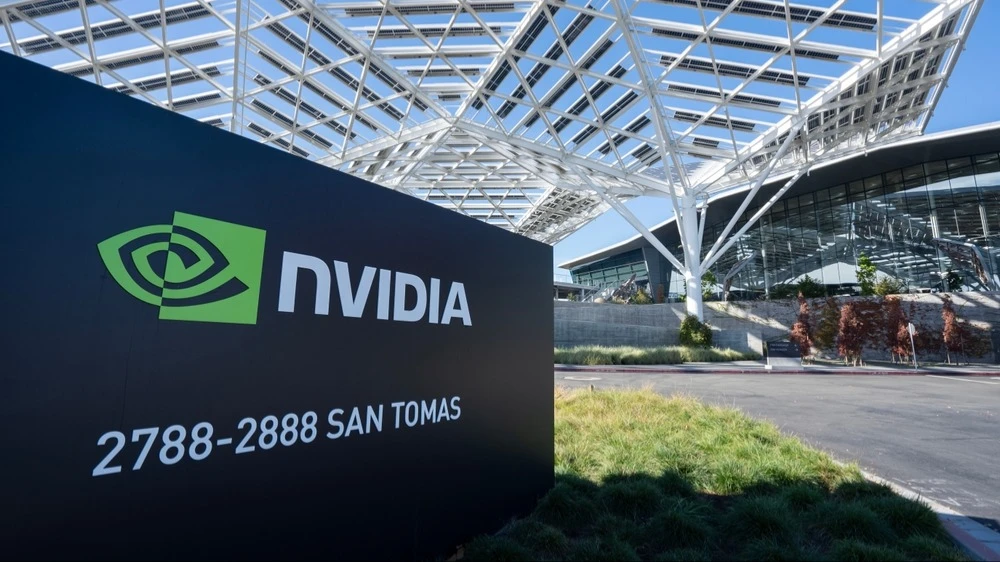Nvidia failed to take away Apple's record for the highest capitalization in history
Nvidia is now worth more than the Canadian and Mexican markets combined

Artificial intelligence processor maker Nvidia managed to climb above Apple's record for the highest market value of a public company in history during shortened trading on July 3. However, Nvidia was unable to maintain its lead until the close, although it ended the day at a new high. The company now has a market value of $3.88 trillion, and analysts predict continued growth: that it could become the first to reach a $4 trillion capitalization as early as this summer.
Details
Shares of Nvidia finished trading on Thursday up 1.3 percent, rising to $159.34 a share. That marked an all-time record closing level for the securities. The company's market value reached $3.88 trillion, more than the combined value of the stock markets in Canada and Mexico and more than the total capitalization of all U.K. public companies, noted Reuters, citing LSEG data. Nvidia is now the most expensive company in the world.
In the course of trading on July 3, the securities rose even more: at the moment - by 2.3%, and the company's capitalization reached $3.92 trillion. Thus, the company exceeded Apple's record of $3.915 trillion, set at the close of trading on December 26, 2024, translates Yahoo Finance. But Nvidia was unable to hold on to that level and thereby take the title of the most valuable public company in history away from the iPhone maker. Apple's market value at the end of trading on July 3 was $3.19 trillion: it fell in 2025 due to lagging artificial intelligence and Donald Trump's threat of duties.
Investors have been actively buying up Nvidia shares because of the hype around AI and after the quarterly report reported in late May, Yahoo Finance notes. The report showed that Nvidia continues to grow steadily on the back of big capital investments by its customers like Microsoft and Amazon in AI chips. This is despite the fact that the White House restricted Nvidia from exporting H20 AI chips to China, effectively depriving it of an estimated $50 billion market.
Since the beginning of the year, Nvidia shares have risen almost 19%. By comparison, the main U.S. stock index S&P 500 for the same period added 6.8%. Nvidia's weight in the S&P 500 is nearly 7.4%, Reuters notes.
Will the rally continue?
Wedbush analyst Dan Ives said Thursday that he expects Nvidia to reach a market capitalization of $4 trillion this summer and potentially grow to $5 trillion over the next 18 months, Yahoo Finance reports. So far, the $4 trillion bar has never been conquered by anyone. Apple was the first public company to reach $1 trillion, then $2 trillion, and then $3 trillion in market capitalization.
"We believe the tech sector will post very strong results in the second half of the year," Ives wrote. - Our positive outlook is based on investors underestimating the coming wave of growth that the $2 trillion in investment over the next three years by businesses and government agencies in AI and its applications will bring."
"We used to be surprised when the first company broke the trillion-dollar [market value] mark. Now we're already talking about four trillion, which is just incredible. It shows that there's a giant race for AI investment going on right now, and everyone is in on it," Joe Saluzzi, co-partner in trading at Themis Trading, added in a Reuters statement. Last November, Nvidia replaced Intel in the Dow Jones index: this, according to Reuters, was a landmark moment in the industry: traditional chips have been replaced by AI and graphics technologies, where Nvidia is playing a leading role.
Nevertheless, some market participants are not so optimistic about the AI boom. For example, legendary short-seller Jim Chanos, who bets on falling quotes, in an interview with Bloomberg said that the euphoria around AI is reminiscent of the boom of the 1990s, when the securities of networking giants soared amid a massive shift to the Internet. "But revenue is more risky here: it's worth corporations suspending capex for six to nine months, and it will immediately affect [AI companies'] sales and profit forecasts. That hasn't happened yet, but it's one of the risks that many people are clearly underestimating," Chanos emphasized;
90% of analysts, who have given ratings to Nvidia advise buying the company's securities, and their consensus target price of $173.9 suggests the chipmaker's market value will rise another 9% over the horizon of the next 12 months.
This article was AI-translated and verified by a human editor
